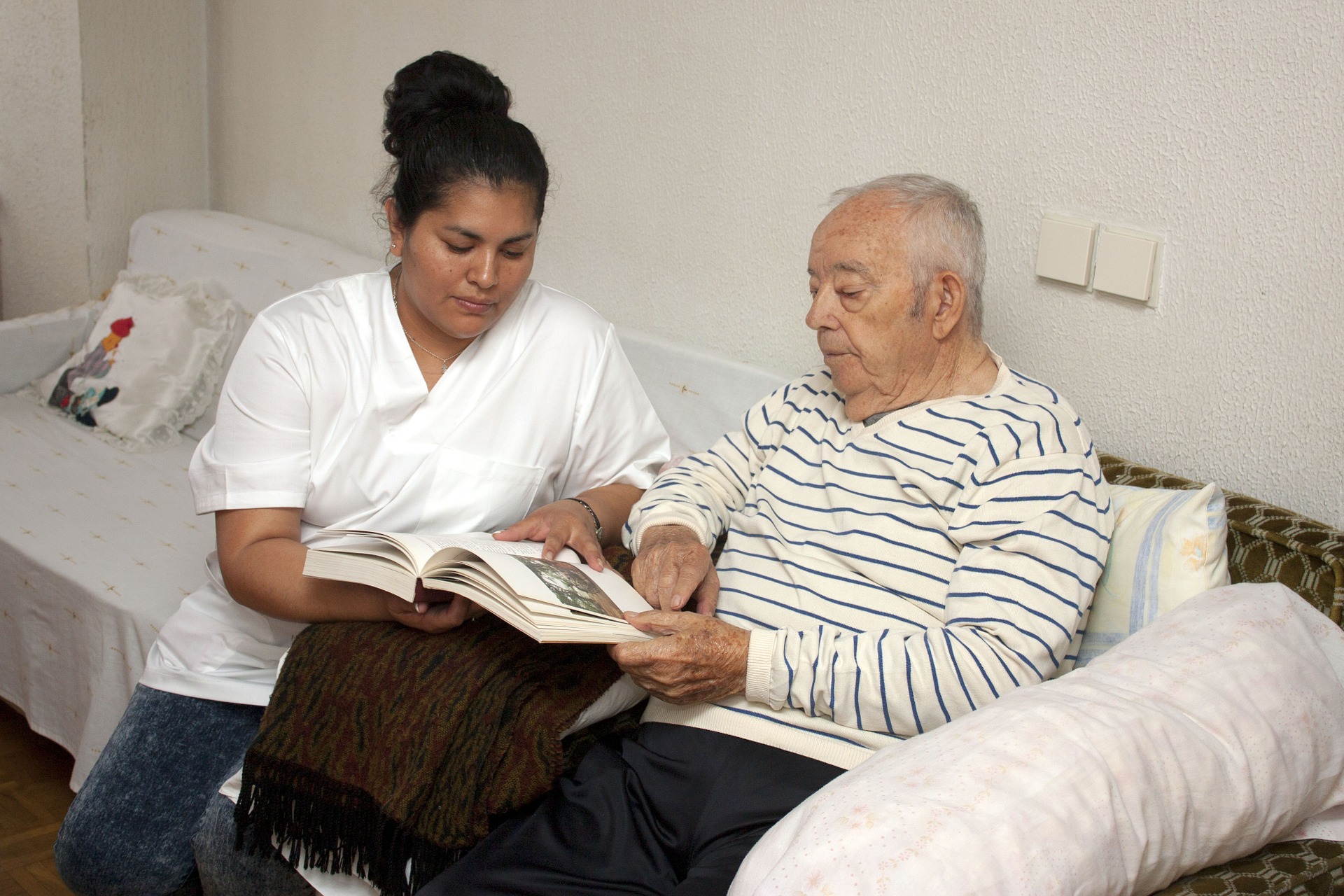One of the frustrations of taking care of a person with dementia or Alzheimer’s disease is trying to effectively communicate. Not only is this frustration rooted in practical issues – they need to understand certain concepts in order to be safe and happy – but can be emotionally charged as well. For the caregiver taking care of a loved one, not being able to communicate with someone who was always an integral part of life can be sad and isolating.
To ease some stress, here are some communication tips for the caregiver of a memory care patient.

- Speak to the dementia patient as an adult, not a child. They may not remember everything, but they are mature adults who have decades of experience living life. Speak to them in a firm but friendly voice, enunciate clearly, maintain eye contact, and communicate what you need in clear and easy to understand language.
- Always include your loved one in the conversation. We often tend to speak for a memory care patient, or speak about them as if they are not even there. Ask questions being as specific as possible, and always add details which can help them to more easily recall the subject at hand. For instance, when speaking to your grandparent about a favorite childhood memory, you can say “I remember when your son Mike would visit you at your Venice house, we would cook hamburgers together at the backyard grill.”
- Avoid negativity at all costs. Memory care patients often feel useless and “in the way” because they cannot participate as they used to. Therefore, compliment them often, maintain a smile, and don’t boss them around. Find fun ways to communicate which make them smile. These strategies will help to ease their frustration and confusion, and allow them to feel more at ease. Reassuring non-verbal signals will also help to calm them down if they are getting frustrated – hold their hand, touch their arm, or give them a hug if these gestures are comforting to them.
- Keep choices and instructions simple. It can be difficult for the sharpest of us to remember a list of instructions. It is nearly impossible for an Alzheimer’s patient. If they can still read, you may want to write a concise, enumerated list if there is something they need to remember. If you want them to make a decision, such as what to wear or where to eat dinner, give them a maximum of two choices; or better yet, make the choice and ask them if they agree.
- Get rid of distractions before attempting a conversation. It is difficult enough to get their mind to focus, and a TV show playing in the background can make it impossible. Sit directly in front of them in a well-lit room, eliminate noise or other distractions, and give them ample time to process and answer your questions. If they are searching for a word, you can help them – but only after helping them to discover it for themselves, and always reinforced with “is that what you meant to say?”
- Maintain a strong sense of empathy. For a caregiver, it can seem like their loved one is living in a fantasy world they can never enter. However, turning the perspective around and realizing that the memory care patient is living in a confusing, unfamiliar world can make all the difference. Put yourself in their shoes for a few moments, and imagine what it would be like to not recognize anyone around you, or wonder why you are no longer in your lifelong home. A sense of empathy can go a long way to kindness in the harder moments.
- Take care of the caregiver. No one can maintain their composure when they are exhausted, feel sick, or never get a break. Be sure to schedule times to pamper yourself, to spend time away from the situation, and to have friends or relatives who can cover for you. Get plenty of rest and exercise, eat well, and realize that you are doing something which is making a significant difference for someone you love.
If it has become too much to handle at home and you need assistance, we invite you to come visit A Banyan Residence in Venice. Our memory care professionals are committed to compassionate care for your loved one. Call us today.
